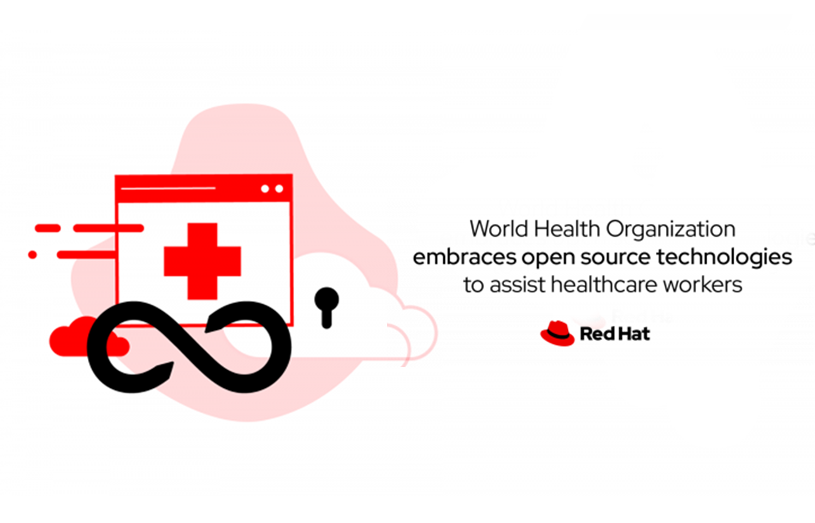OPEN SOURCE TECHNOLOGIES TO ASSIST HEALTHCARE WORKERS IN WORLD HEALTH ORGANIZATION
Red Hat Open Innovation Labs virtual residency helps international public health leader create a DevOps platform for ongoing open innovation
Red Hat, Inc., the world’s leading provider of open source solutions has announced that it will be working with the World Health Organization (WHO), the specialized agency of the United Nations responsible for international public health, to create a sustainable open source development infrastructure to support the development of the Learning Experience Platform (LXP) for the WHO Academy, the organization’s new state-of-the-art training center.
The collaboration used modern development practices from Red Hat Open Innovation Labs,Open Practice Library, and open source technologies from Red Hat community projects. With these techniques WHO was able to build a scalable, more flexible DevOps platform to help with activities such as managing, testing builds, analyzing code, and data visualization, to enable faster access to relevant healthcare knowledge and to reduce misinformation.
GLOBAL NEED FOR INFORMATION
With COVID-19 data getting refreshed almost by the hour, health workers need to stay on top of the most up-to-date and accurate information. Swifter delivery of timely information is becoming a crucial factor, and WHO realized that it needed to improve its digital capabilities in order to serve the rapidly changing needs of health workers around the world. The WHO recognized the need to accelerate the dissemination of latest health knowledge and evidence to practitioners, policy makers and its own staff, by working closely with Red Hat to drive new practices.
SPEED AND ACCURACY THROUGH AN OPEN APPROACH
WHO’s new DevOps platform addresses the ability to respond to current challenges, such as combating misinformation, as well as gaining additional skills to establish a new learning experience platform. WHO also sought to lay the groundwork for an open data model that can meet health workers’ future needs, including offering more personalized learning experiences.
During an eight-week virtual residency with Red Hat Open Innovation Labs, the WHO team worked collaboratively with Red Hat experts. Red Hat Open Innovation Labs aim to help organizations integrate people, practices and technology to increase agility in the development of software and products, catalyze innovation and solve internal challenges in an accelerated time frame.
As part of the initiative, the WHO Information Management and Technology team was invested in adopting new Agile methodology, lean product development and DevOps practices, in parallel to its existing more traditional project management approach. These cultural shifts were intended to increase adaptivity to changing needs and make the WHO DevOps platform more scalable for current and future demands. The skills and tools gained from the Red Hat Open Innovation Labs engagement has helped lay the foundation for a learning solution that isn’t tied to a single person or technology. Instead, the WHO team now has the holistic knowledge and proficiency to manage its new platform and processes in-house moving forward.
WORKING TO LEAVE NO ONE BEHIND THROUGH DIGITAL INCLUSION
From the beginning, WHO was determined to build the platform using open source technology. Aligned with its principles, open source enables cross collaboration, accessibility and affordability, in particular for low- and middle-income countries.
The new LXP will be run entirely on Red Hat’s open hybrid cloud technologies, offering WHO a scalable, flexible and more secure platform. Red Hat OpenShift provides the cloud-native foundation, a streamlined environment for building and deploying containerized applications and capabilities for assessing application metrics. Red Hat CodeReady Workspaces is also being used to provide LXP developers a fast and reliable Kubernetes development foundation. By basing LXP on an open technology framework, WHO is now better able to adopt emerging architectures and applications iteratively and incrementally, providing real-time value to global health workers. In addition, Red Hat OpenShift, as a cloud-agnostic Kubernetes platform, enables WHO to scale the LXP as demand grows without dependency on any particular cloud vendor.








